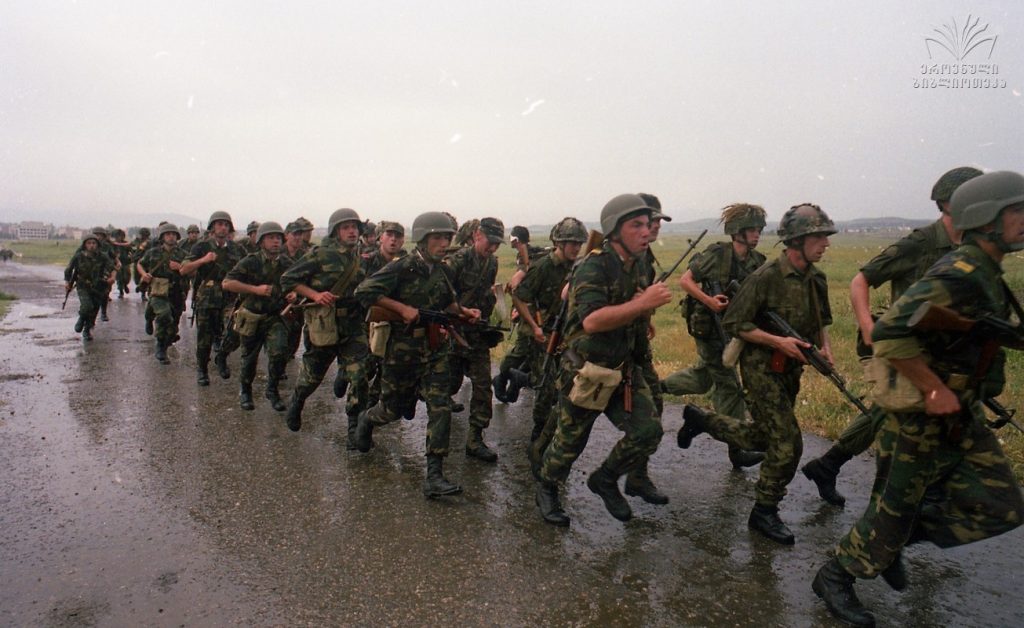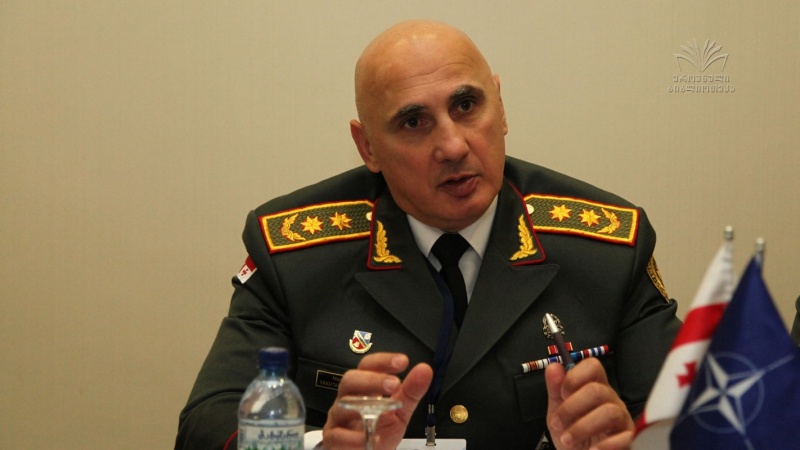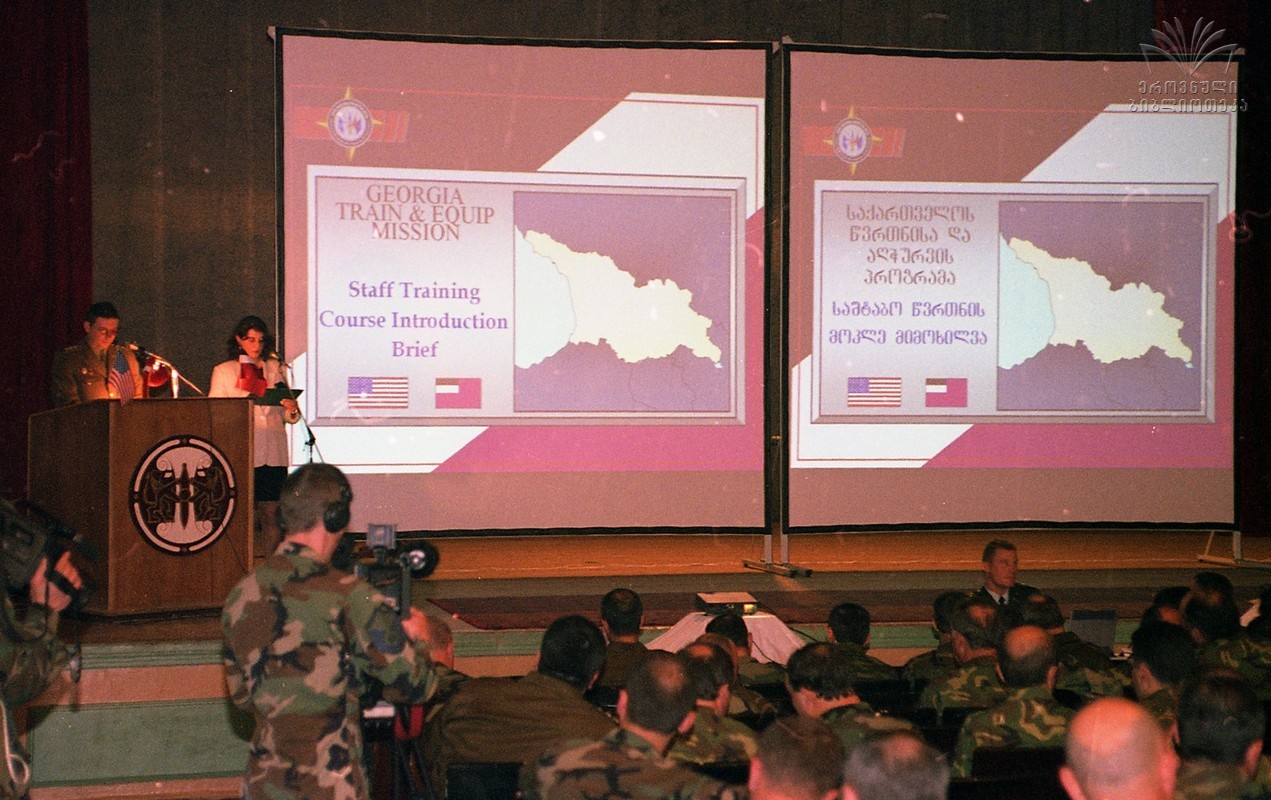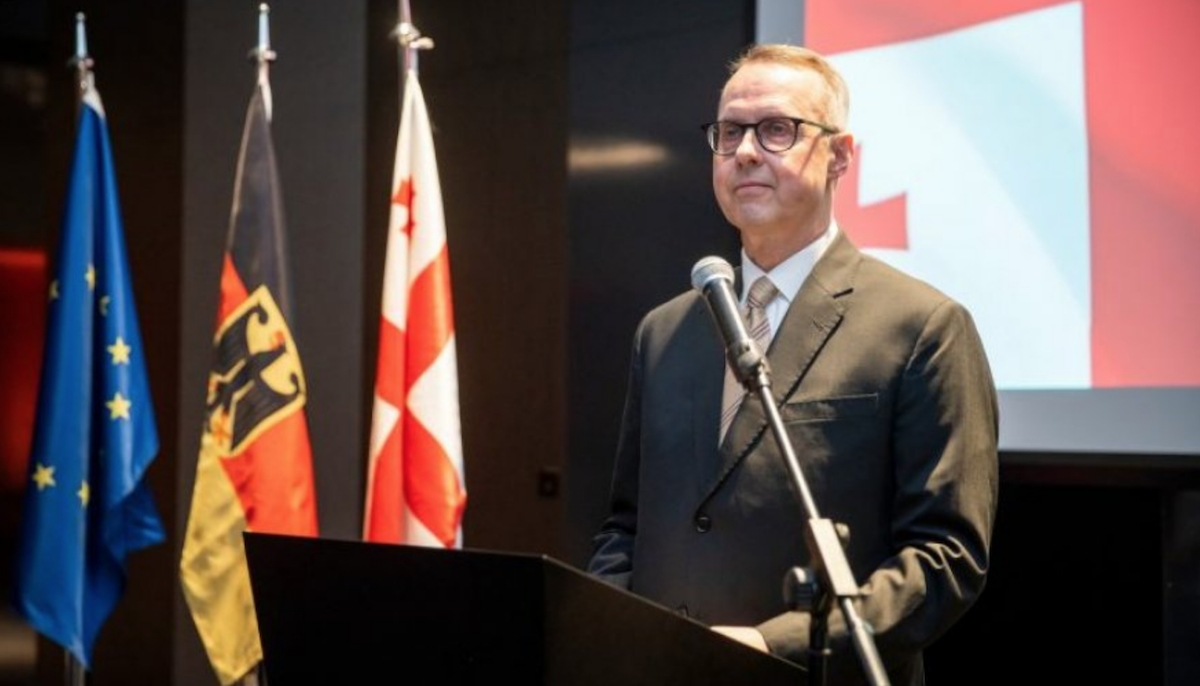Georgia is left without Western military aid: What does this mean for the country?
Georgia without Western military aid

After the Georgian parliament passed the law on transparency of foreign influence, Western partners took specific actions in response to the anti-Western policies and rhetoric of the Georgian government.
Initially, the U.S. imposed visa restrictions on members of the ruling party and government of Georgia (the names of those sanctioned are not disclosed, according to U.S. law). On June 27, the European Council suspended Georgia’s EU accession process.
The U.S., EU, NATO, and EU member countries have been sequentially halting financial aid to Georgia, including military assistance and joint military exercises.
Amidst this, opposition figures and security experts are voicing concerns about alarming threats.
The decisions made over the past month are as follows:
- July 5: The traditional U.S.-Georgia joint exercises “Noble Partner,” held in Georgia since 2016, were postponed indefinitely by Washington. According to the Pentagon, this move is part of a review of U.S. policy toward Georgia. It is possible that Georgia might not receive U.S. military aid and support in the upcoming fiscal year starting in October.
- July 9: The EU suspended a €30 million aid package intended to strengthen Georgia’s defense. “If the situation worsens further, other measures will be considered,” said EU Ambassador to Georgia
Paweł Herczyński. He also explained that the EU accession process for Georgia is on hold. - July 9: Georgian MP Teona Akubardia announced that Denmark had suspended a multi-million euro, four-year project supporting peace and stabilization in Georgia, part of the NATO-Georgia annual package of measures.
- July 10: German military forces withdrew from participating in the “Noble Partner” exercises. “We also canceled a large legal forum, which was held in Tbilisi last year and was scheduled to take place in Berlin this summer,” said Peter Fischer, the German Ambassador to Georgia.
“Georgia has strayed from the path of democracy”
The reason for all these decisions is the anti-democratic, anti-Western rhetoric of “Georgian Dream,” which accuses the West of attempting to drag Georgia into a war, as well as the adoption of the “foreign agents” law despite repeated calls and recommendations, which opposes Georgia’s European integration.
“This decision is related to the false accusations by the Georgian government against the U.S. and other Western organizations, alleging that they pressured Georgia to open a second front against Russia and were involved in two attempts at a coup. Therefore, the U.S. government has determined that now is not the right time to conduct large-scale military exercises in Georgia,” stated the official announcement published on the U.S. Department of Defense website on July 5, which also noted that the exercises were scheduled to take place from July 25 to August 6.
The Ministry of Defense’s response was published by Georgia’s Public Broadcaster. The text states that “these exercises benefit both sides,” and despite the postponement, preparations for next year’s exercises—”Strong Spirit 2025″—are ongoing.
- NATO Summit declaration omits mention of Georgia’s accession possibility
- EU has suspended €30 million in aid to Georgia. The ambassador warned of further measures
- The US has indefinitely postponed joint military exercises with Georgia
On July 9-10, the EU and German ambassadors to Georgia made statements in Tbilisi expressing concern over the actions taken by the Georgian authorities.
“I have never witnessed such a turn of events. There are some objective facts that do not necessarily need to be listed, but the transparency law clearly contradicts European standards… Legislative acts are not very compatible with our partnership… If the government chooses this unacceptable rhetoric, relations will change… Plus, there is rhetoric. Germany, the European Union, even the U.S., former best friends and strong supporters after 30 years of continuous fantastic partnership, have somehow, very surprisingly, suddenly become dangerous. Sometimes we are called fascists, terrorists; such rhetoric does not foster partnership,” said Peter Fischer, the German Ambassador to Georgia.
According to him, Germany, along with the U.S., is one of the largest donors of development cooperation to Georgia, but the process is currently under review. The ambassador emphasized that the European Council has decided to suspend Georgia’s EU accession process.
“This is now the policy of the European Union,” he said.
“We have decided not to take on new commitments towards Georgia at this time, so there are no new financial commitments from Germany for Georgia for now. We will also review the current portfolio. It should be reiterated that aid is directed to the state of Georgia; I do not have exact figures, but approximately 10-15 percent is no longer directed to the state. Additionally, German military forces have canceled their participation in the ‘Noble Partner’ exercises, which is very disappointing. We have a long history of cooperation in the legal field. We have canceled a large legal forum that took place in Tbilisi last year and was scheduled to occur this summer in Berlin,” said Ambassador Fischer.
“These are incomprehensible micro-decisions” — Response from the Georgian Dream
Georgian authorities claim, on one hand, that the financial aid in question is not significant enough to have any substantial impact, and on the other hand, repeatedly suggest that the West’s goal is merely to remove them from power. How will this attitude affect the West’s subsequent decisions?
Georgian foreign minister Ilia Darchiashvili described the Western sanctions as “incomprehensible micro-decisions.”
He stated that “such financial assistance has served and continues to serve to strengthen our country’s defense capabilities and develop the potential necessary for the country to avoid threats. These micro-decisions are unclear to us because security challenges, including occupation, have not disappeared.”
Darchiashvili asserts that Georgia continues to reform and reiterates the prime minister’s frequent statement that Georgia is now closer to membership than it was before the adoption of the “foreign agents” law, even though both the EU and the U.S. view this law as a problem.
“Georgia consistently fulfills its obligations to the European Union, which will undoubtedly lead us to our main goal — full EU membership. If there are difficulties in opening negotiations, I can remind you that we also faced challenges in obtaining candidate status, even though we did everything to achieve it. I have similar optimism that we will soon start negotiations. Negotiations are a very long, very difficult process, but we are committed to irreversibly leading Georgia on the path to European integration,” says Darchiashvili.
Vice-Speaker Gia Volsky made a statement in parliament and once again accused the West.
“When Georgia’s territories are occupied and the greatest threat is Russia’s aggressive policy, with Russian tanks just 700 meters from Tbilisi and missiles aimed at us, how can we be reducing our army and sending millions to NGOs with no ratings, which slander, are at the forefront of radical opposition, destabilize the situation, and organize a coup in the country?” he said.
Expert opinions
JAMnews spoke with Georgian experts about the dangers facing the country as a result of the “Georgian Dream” policy and what it might lead to:

Teona Akubardia, Deputy Chair of the Parliamentary Defense and Security Committee:
“This means nothing less than the isolation of the country, which will have the most severe consequences for Georgia.
It’s not just about the postponement of joint exercises with the U.S.; there are already discussions that this situation may be reflected in the U.S. Defense Authorization Act, from which Georgia could be completely excluded. This is a critical issue for our country in terms of military, political interests, and national security.
According to old strategic documents, the tasks of the Georgian Defense Forces were deterrence and defense. This means having such a strong army that the opponent will not attack you, or if they do, you will be able to defend the country. This was the primary task of our army.
The second task was participation in peacekeeping missions, and the third was assisting the government during floods and other natural disasters.
Due to the actions of the ‘Georgian Dream,’ our army will only have the function of assisting the government during emergencies, rather than important functions such as deterrence, defense against the enemy, and participation in peacekeeping missions.
Our defense strength relies on the political and military support of our NATO partners. During the military exercises, the presence of NATO troops in Georgia was a significant deterrent against Russian aggression, both during the exercises and in the planning stages.
With all of this canceled, it will, of course, be easier for Russia to make such decisions if needed, and it will make Georgia even more vulnerable to Russia. In effect, we are returning to a state where Russia, in the 1990s, appointed its own people to defense and security roles directly from Moscow.”

Major General Vakhtang Kapanadze, Security Researcher at Geo-Case:
“Overall, these sanctions from our partners have two aspects – political and military. The military aspect is that we already have the smallest military budget in the region, so if this budget does not include foreign assistance, we will have to reallocate funds from areas where we previously spent foreign aid. This, of course, negatively affects the armament, training, and other aspects of the Georgian Armed Forces.
The political side is clear – we are losing a significant deterrent factor. We demonstrated to our adversaries that Georgia was not alone. Countries like the United States, the United Kingdom, Germany, and NATO and its members in general supported us. This was crucial because, believe me, it was clearly a deterrent for our enemies. Without it, the situation becomes very challenging.
I hope that they will not ultimately abandon us, but the fact is that this situation plays into Russia’s hands. Unfortunately, I do not expect this to be the last round, and there may be more to come.
“I am not a political scientist and cannot make political judgments, but concerning security and the military, I can say that when you have only $350 million, every million counts. And if you count who has suspended aid and for how much, and possibly how much more will be suspended, it really adds up.
Even €40 million is significant for us. How can one say that this amount is insignificant? It is very important and painful because these funds will be deducted from training and rearmament.
Most importantly, part of this aid was aimed at achieving certain standards. We were helped to prepare the Territorial Defense Forces with allocated funds. Some of the aid was directed towards acquiring non-lethal engineering equipment. Now we will have to allocate money from the budget for this, which will divert funds from other needs.
The second major issue is that we are left without partners in front of Russia, and there is no doubt that this is the most dangerous aspect because, with Russia, weakness is like a red rag to a bull.
For Russia, someone’s weakness leads to aggression. If the combat status of the Georgian Armed Forces and our current capabilities are weakened, it could provoke Russia rather than deter it. This is certainly a serious threat to national security.”
U.S. military assistance to Georgia
The U.S. has been a defense partner of Georgia for over 30 years. During this period, the assistance provided by the United States for institutional building, training, and equipping the Georgian Armed Forces, and later the Georgian Defense Forces, has exceeded two billion dollars.
Defense cooperation between the two countries began in 2002 with the “Georgia Train and Equip Program” (GTEP). This two-year program, which received $64 million from the U.S., is considered the first step in the creation of a modern Georgian military.

According to the 2021 Congressional Research Service report, since declaring independence, Georgia has become a leading recipient of U.S. foreign and military aid in Europe and Eurasia.
In the 1990s, the U.S. government provided Georgia with over $860 million in aid, averaging $96 million per year.
In the 2000s, Georgia became the largest recipient of U.S. aid per capita in Europe and Eurasia.
From 2001 to 2007, foreign aid to Georgia totaled over $945 million, averaging $135 million per year.
Georgia without Western military aid



















